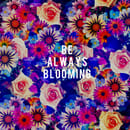One of the blessings, and the conundrums, of the internet and digital age is the multiplicity and accessibility of different art forms. Creators make content like videos, comics, and blogs on platforms ranging from YouTube, Instagram, and Webtoons to sites like Her Campus. Provided one has access to the internet in the first place, there is a huge quantity of media available to experience without needing to pay any money upfront. While this is beneficial to the consumer (if one takes the view that more is always better), it creates something of a quandary for the artists, musicians, writers, and others who are providing that work without the assurance of compensation. How can they support themselves while still reaching a wide variety of people, and how do audiences fairly compensate creators? Does there always have to be money involved?
As a way of at least beginning to sort through these questions, I wanted to look at some of my own habits across different platforms and think about the moral questions those habits raise for me. Now, I don’t claim to be an expert in the ethics of artistry and the internet, and other people use the internet completely differently than me, so what I’ll be discussing might not be remotely relevant to some. I thought this article would be interesting and useful to write, however, as a way to provide one perspective on the question of compensation for art and the duties we have to creators.
Advertising, intrusive and annoying as it can be, has allowed content to be spread widely long before the internet existed. On the radio, music stations might play songs for thirty minutes, or for ten songs in a row, and so on, then play a few minutes of commercials. Even NPR has breaks where broadcasters read messages from sponsors. On the internet, however, there is now the option to use browser extensions like AdBlock that effectively remove most, if not all, ads on sites. While it has made surfing the internet significantly less annoying, it also creates a problem when smaller creators or websites rely on revenue from advertisers to run their business or make money. It somehow feels less problematic to use AdBlock on sites like Facebook (this could be debated) than to use it on artists’ personal websites or YouTube channels.
One of the fuzzy areas I’ve run into has been as I’ve followed people like Julia Kaye and Kate Leth on Instagram and Twitter. Both women are successful comic artists and animators, though the way I’ve gotten to know them has not been through their art so much as their personal postings (if tweets and posts that reach thousands of people can ever truly be “personal”). With Julia Kaye, I do follow her art as well as her personal Instagram, and with Kate Leth, I occasionally see some of her art that she tweets. With Julia Kaye especially, I’m beginning to feel that my likes and retweets aren’t really enough to fairly express the value that I get from their work. After all, she generously shares some very personal experiences that grant me and her followers access to a small part of her life.
There’s so much more to discuss in regards this topic, including the ethics of using an app like Webtoons (which houses hundreds of comics you can access for free), and the possible solution (to some quandaries) of giving money to artists’ Patreon or Ko-Fi accounts. On a personal level, there’s the question of what do we owe (in attention and emotional energy) to our friends and family whose lives we follow on social media? Because I want to delve more deeply into these questions and do them justice, next week I’ll continue this thread and hopefully offer some resolution to the two problems I brought up and then ask more!
Image Credit: Feature, 1, Kate Leth, Julia Kaye


